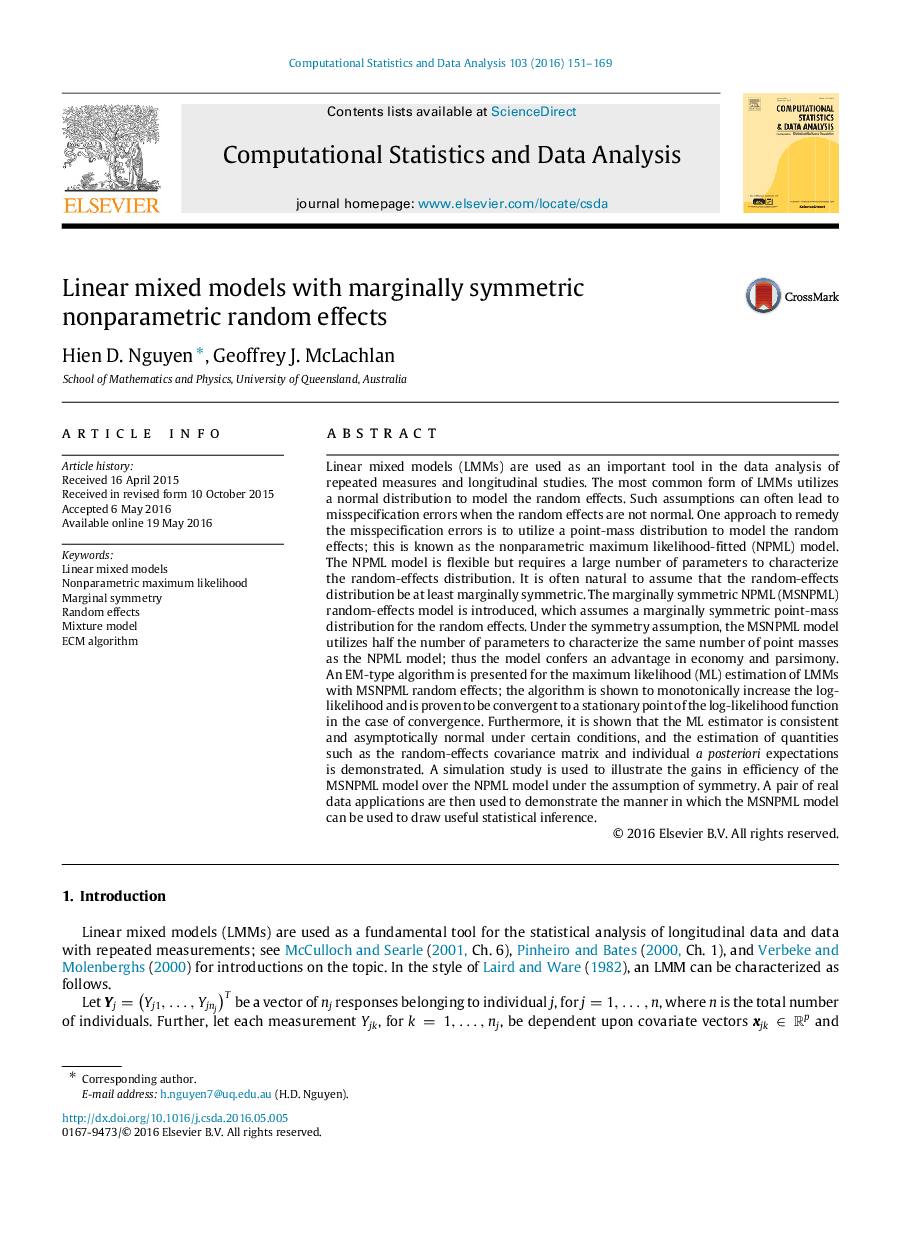| Article ID | Journal | Published Year | Pages | File Type |
|---|---|---|---|---|
| 415260 | Computational Statistics & Data Analysis | 2016 | 19 Pages |
Linear mixed models (LMMs) are used as an important tool in the data analysis of repeated measures and longitudinal studies. The most common form of LMMs utilizes a normal distribution to model the random effects. Such assumptions can often lead to misspecification errors when the random effects are not normal. One approach to remedy the misspecification errors is to utilize a point-mass distribution to model the random effects; this is known as the nonparametric maximum likelihood-fitted (NPML) model. The NPML model is flexible but requires a large number of parameters to characterize the random-effects distribution. It is often natural to assume that the random-effects distribution be at least marginally symmetric. The marginally symmetric NPML (MSNPML) random-effects model is introduced, which assumes a marginally symmetric point-mass distribution for the random effects. Under the symmetry assumption, the MSNPML model utilizes half the number of parameters to characterize the same number of point masses as the NPML model; thus the model confers an advantage in economy and parsimony. An EM-type algorithm is presented for the maximum likelihood (ML) estimation of LMMs with MSNPML random effects; the algorithm is shown to monotonically increase the log-likelihood and is proven to be convergent to a stationary point of the log-likelihood function in the case of convergence. Furthermore, it is shown that the ML estimator is consistent and asymptotically normal under certain conditions, and the estimation of quantities such as the random-effects covariance matrix and individual a posteriori expectations is demonstrated. A simulation study is used to illustrate the gains in efficiency of the MSNPML model over the NPML model under the assumption of symmetry. A pair of real data applications are then used to demonstrate the manner in which the MSNPML model can be used to draw useful statistical inference.
